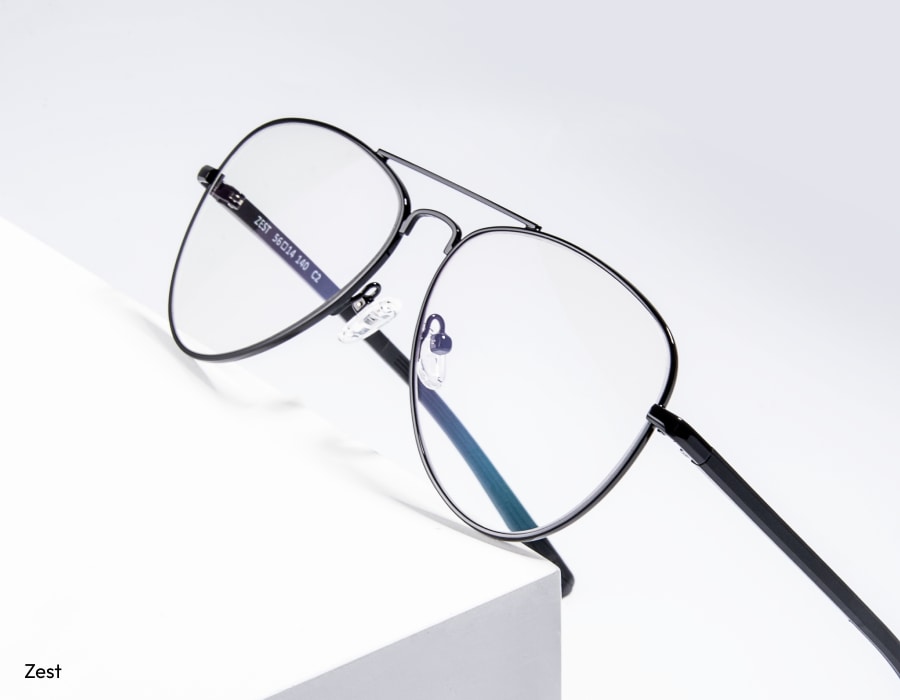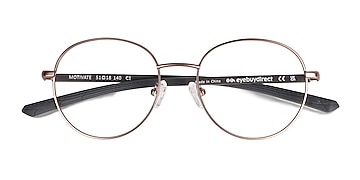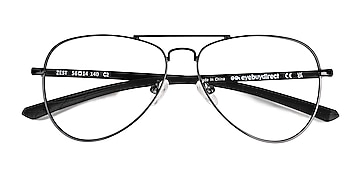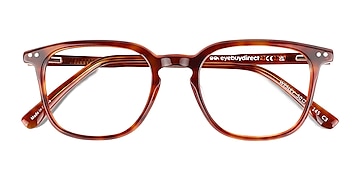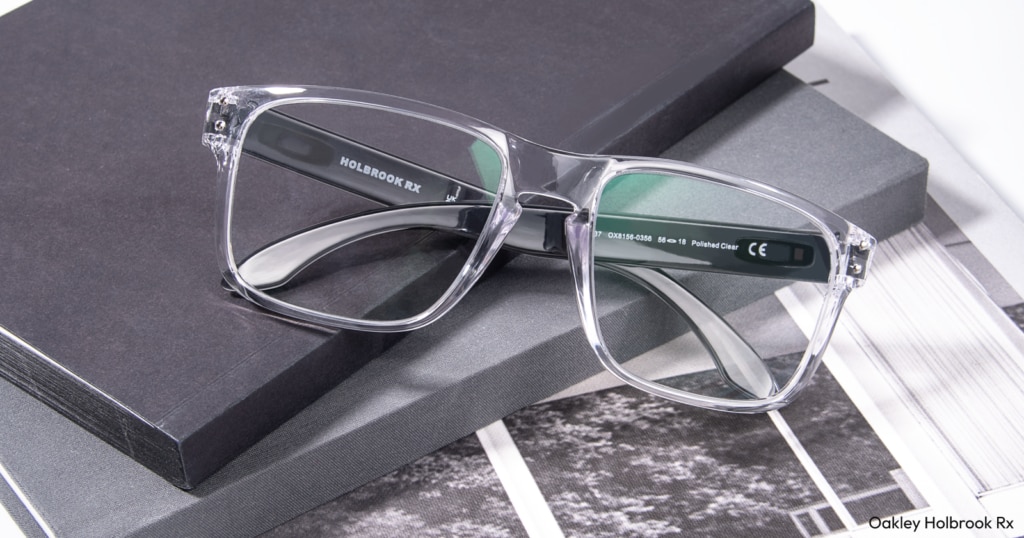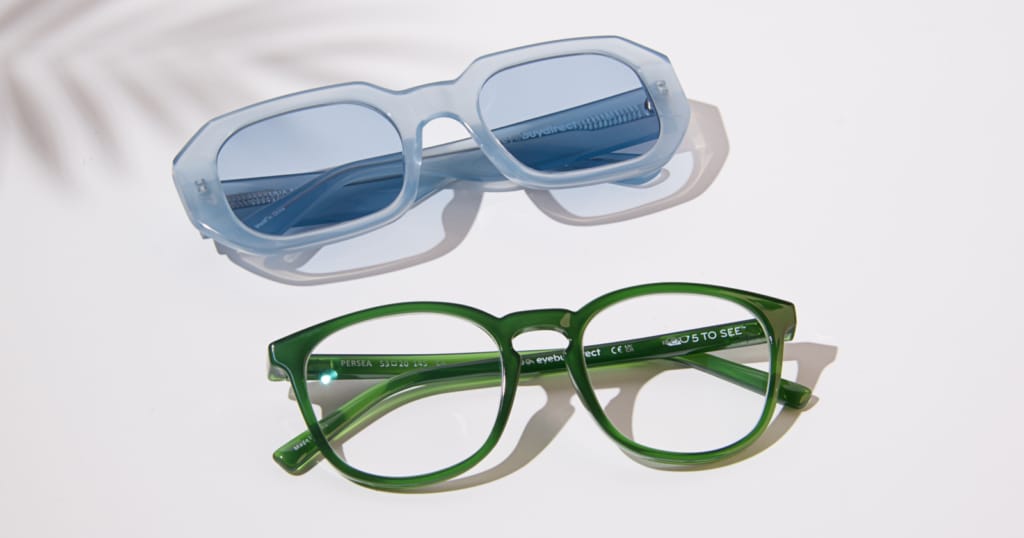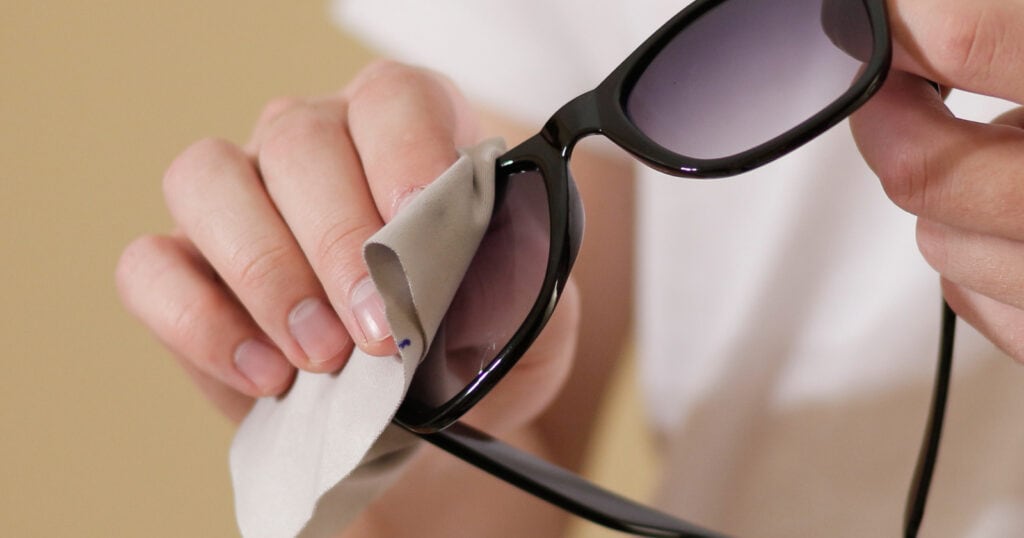Anti-reflective (AR) coating is a thin layer that goes on lenses. It reduces reflections. This makes your vision clearer and more comfortable. This feature is popular in eyewear.
Before you decide if this coating is right for you, it’s good to know what it does and how it fits into your daily life.
How Does Anti-Reflective Coating Work?
AR coating employs multiple layers to address various light wavelengths, thereby reducing reflection and allowing more light to pass through the lens. This results in improved vision and reduced eye strain.
This lens coating is made up of several extremely thin layers of metal oxides that are applied to the front and back of the lens. Each layer helps block a specific wavelength of light to help eliminate reflections.
If you notice that your lenses have a bit of color to them, don’t worry. All AR coatings reflect some color, depending on the manufacturer. The most commonly reflected colors are blue, green, and yellow-green. The reflected color is only visible when looking at the lenses from certain angles.
Is Anti-Reflective Coating Worth It for You?
The primary goal of AR coating is to provide clearer vision and reduce glare. This helps when driving at night or using a computer for a long time. Additionally, it enhances the appearance of glasses by making lenses less noticeable, allowing others to see your eyes more clearly.
You can choose from a variety of lens coatings when getting new glasses. AR coating may be a good option for you if:
- You want to see better when you’re driving at night.
- Your eyes feel tired after long periods of digital screen use.
- You don’t like seeing reflections on your lenses.
Benefits of Anti-Reflective Coating
Anti-reflective coating on glasses improves vision and appearance. It lessens glare, sharpens sight, and makes eyewear look better. Whether driving at night or using a computer for extended periods, this coating provides substantial benefits.
Better Vision and Comfort
Anti-reflective coating enhances vision clarity and sharpness, reducing lens reflections and allowing more light through. This is particularly advantageous for people who use digital devices for long durations, as it alleviates eye strain and fatigue. Less glare also means less squinting, making viewing more comfortable.
AR coating is especially beneficial if your glasses have thinner high-index lenses because they naturally reflect more light. Adding this coating can help high-index lenses work better and feel more comfortable for you.
Safer Night Driving
Night driving can be difficult due to glare from headlights and streetlights. Anti-reflective coating mitigates these reflections, which can distract or impair vision. With this coating, drivers experience clearer road visibility, enhancing safety and confidence during night driving.
Applying an anti-reflective coating to glasses is a wise decision. It offers practical advantages and enhances aesthetics, whether using screens or driving at night. This coating helps you see more clearly and comfortably.
Drawbacks of Anti-Reflective Coating
While anti-reflective coatings offer many benefits, they can be more prone to scratching than uncoated lenses. This calls for careful handling. Furthermore, AR coatings can highlight dirt and smudges, requiring frequent cleaning to maintain clarity.
Maintenance Tips
Caring for AR lenses is crucial. Here are some maintenance tips:
- Cleaning methods – Use a microfiber cloth to gently clean your glasses lenses. Avoid paper towels or clothing, which may scratch the coating. Use lens cleaner designed for AR-coated lenses and refrain from using household cleaners, as they can damage the coating.
- Storage – Store glasses in a protective case when not in use. This prevents scratches and protects from dust and dirt.
- Handling – Hold glasses by the frame rather than the lenses to reduce fingerprints and smudges, minimizing cleaning needs.
By following these tips, you can enjoy the benefits of anti-reflective coating while minimizing its downsides. A little extra care ensures clearer, longer-lasting lenses.
Is Anti-Reflective Coating Worth the Cost?
When considering adding anti-reflective coating to glasses, it’s vital to evaluate the cost-benefit ratio. This coating reduces glare and improves clarity, enhancing your visual experience. Understanding the value it provides can help you decide if it’s the right choice. Let’s examine this further.
The cost of adding an anti-reflective coating to your lenses depends on where you buy your eyewear. At Eyebuydirect, AR coating comes standard on all of our lenses. For people spending extended hours in front of screens or driving at night, the benefits of reduced glare can be significant. The coating also makes glasses appear clearer and more transparent, enhancing both appearance and comfort.
Check if your insurance plan covers anti-reflective coating. Some plans offer this benefit, alleviating cost concerns. If covered, your out-of-pocket expenses may be minimal, making the coating more appealing.
The advantages of anti-reflective coating make it a smart investment. From enhanced vision and reduced glare to improved aesthetics, many find anti-reflective lenses worth it. Evaluate your lifestyle and vision needs and consult your optician for personalized advice.

Is Anti-Reflective Coating Right for You?
Picking the right lens coating can greatly affect how you enjoy your eyewear. Anti-reflective coating, or anti-glare, minimizes reflections on lenses. As a result, more light reaches your eyes, boosting clarity and comfort. Let’s explore some lifestyle factors that might guide your decision.
Your lifestyle plays a key role in deciding if anti-reflective coating is right for your glasses. Consider the following:
- Night driving – If you often drive at night, anti-reflective coating helps. It cuts glare from headlights and streetlights. This makes night driving safer and more comfortable. You get clearer vision and less strain on long drives.
- Screen time – Many people spend considerable time on screens. Whether for work or leisure, this can lead to eye strain. Anti-reflective coating reduces screen glare. This helps ease discomfort and improves focus during long use.
- Light sensitivity – For those sensitive to bright lights, anti-reflective coating helps by reducing glare and reflections, facilitating easier vision in various lighting conditions.
Think about these factors to see if anti-reflective coating is right for your glasses. This coating offered at Eyebuydirect can improve your vision and comfort.



